F1: Schumacher Takes F1 Back to The Future
In the next few weeks, F1 junkies will see the kind of close-run drivers’ championship battle they’ve craved for nearly ten years. It’s highly likely that the remaining Grand Prix races will extend the competition to the very last race on the F1 calendar. Equally important, the end of the ‘06 season will signal the changing of the guard. Whether or not Michael Schumacher clinches the title, his retirement will signal the most dramatic shift in F1 in a generation.
In the last dozen years, Michael Schumacher has completely dominated F1. To say the German competitor is an exceptionally talented driver is like saying Albert Einstein was a halfway decent physicist. Schuey may not have won every title during his reign, but his presence has exerted an enormous influence on the sport since his first race at Spa-Francorchamps. Other drivers have risen from the ranks to take races and titles away from Schumi: Mika Hakkinen, Jacques Villeneuve, and Ayrton Senna, to name a few. But no driver has come close to marginalizing Shumacher’s talent, determination and success.
The ultimate race of the season, at Interlagos, Brazil, will mark the end of the Schumacher era and the beginning of a brave new world for F1. While F1 Supremo Bernie Ecclestone may fret that F1 sponsors may lose interest in the post-Schumacher world, the opposite could also be true: a new champion may increase the advertising and promotional possibilities and revitalize the sport. History is our guide. Just as Schumacher has colored the world of F1 during his tenure, other drivers have done the same. The passing of each, whether into retirement or a more tragic fate, has brought great change to the sport.
During his time at the top of F1, Jim Clark’s skill was held in the same regard as Schumacher’s. Clark’s peers referred to him as “the natural.” Unlike Schumi, whose single-minded dedication to F1 demonstrates the sport's monolithic nature, Clark raced a wide variety of machines (including touring and rally cars) over a wide variety of tracks for a huge number of races. He proved his talent and mettle in all conditions, against all comers. Clark drove the first mid-engined car to win the Indianapolis 500, becoming the only driver ever to win both the American classic and the F1 title in the same year.
Clark died in 1968 at a relatively unimportant F2 race in Hockenheim, Germany. A suspected tire failure catapulted his Lotus into the trees that lined the forest straights. Chris Amon, Clark’s close friend and rival, lamented his demise with a question that personified the concerns that would drive the next stage of F1’s history. “If this can happen to Jimmy, what chance do the rest of us have?”
Clark’s passing left a gaping void in the soul of the sport. Jim Clark was F1’s hero, a man considered by some to be the best racing driver of all time, who made winning look easy. He’d been suddenly snatched away by the sort of accident no driver could avoid. This hole and the underlying issues behind it were quickly filled and addressed by the sport’s next champion.
Jackie Stewart emerged in the late 60’s as Jimmy Clark’s heir apparent. While many will remember Stewart’s superb skill behind the wheel and his introduction of "personal branding," The Flying Scot’s contribution to F1 safety is his most enduring legacy. Stewart pioneered the introduction of several important safety measures, including seatbelts and full-face crash helmets. But his legacy should be painted with a broader brush– he brought F1 out of the barbaric age and into the future. Stewart’s rise was the rise of the new F1.
Stewart vigorously, tirelessly and effectively campaigned to transform the “tragic hero” race driver of the 50’s and early 60’s into a protected professional. He addressed the inherent faults and dangers of the race courses and challenged car makers to build something better than the world’s fastest coffin. He brought F1 into the modern era. His personal and professional conduct redefined the way racing drivers were perceived by the general public; Stewart was the first professional race driver in the modern mold.
History lesson aside, Schumacher’s departure from F1 will leave a similar void. While the circus will lose its most prolific winner, the holder of nearly every F1 record, it will gain an opportunity for one or more of the young guns to step up and infuse the sport with the new blood and fresh ideas. The process is essential to F1’s development and survival. We can only hope that the driver who steps into Schumacher’s shoes brings something to the sport that is uniquely his own, something that pushes F1 into its next phase– someone who represents the new future of F1.
More by Mitchell Yelverton
Latest Car Reviews
Read moreLatest Product Reviews
Read moreRecent Comments
- Pig_Iron I one of those weirdos who liked these.
- SCE to AUX Inflation adjusted $79k today (!), so I guess $28k is a bargain....This is another retro car that was trying too hard, but it is very nice.
- EngineerfromBaja_1990 It might provide an edge in city driving but from what I've read elsewhere the Hybrid trucks are 600 lbs to 700 lbs heavier than the gas only trucks. That translates to a curb weight of around 5000 lbs which is not uncommon for a full size truck.And a test drive suggested the Hybrid is not quicker than the gas only trucks. So it looks like the Hybrid powertrain is pretty much compensating in power for all that added weight while not providing significant fuel savings. Not what many would expect after shelling out an extra $5K - $7K for the next step up in power.
- Buickman DOA like no other!
- 3-On-The-Tree Yes anything offroad or high performance isn’t cheap. My oldest son would do occasional burnouts in his Mustang GT then he had to buy tires for it. Needless to say he doesn’t do burnouts anymore.



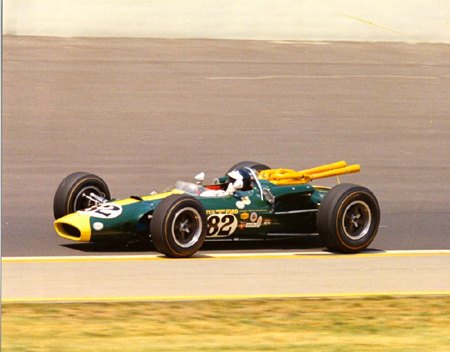














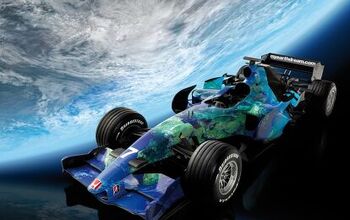
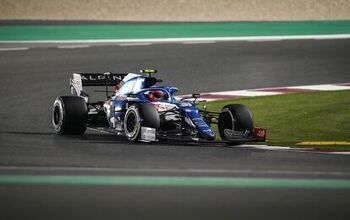
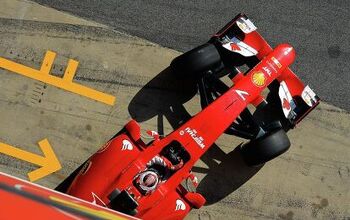
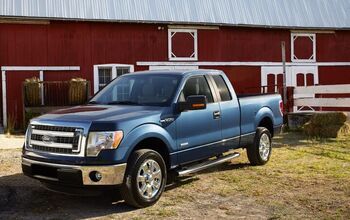
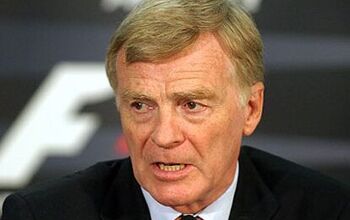











Comments
Join the conversation
I noticed that Michael Schumacher's name is still spelled incorrectly in the article's title. Is this being done for a reason? I hate being left out of a joke!
Of course, now that I have read the article, I feel like a retard. Sorry, folks. Nothing to see here...